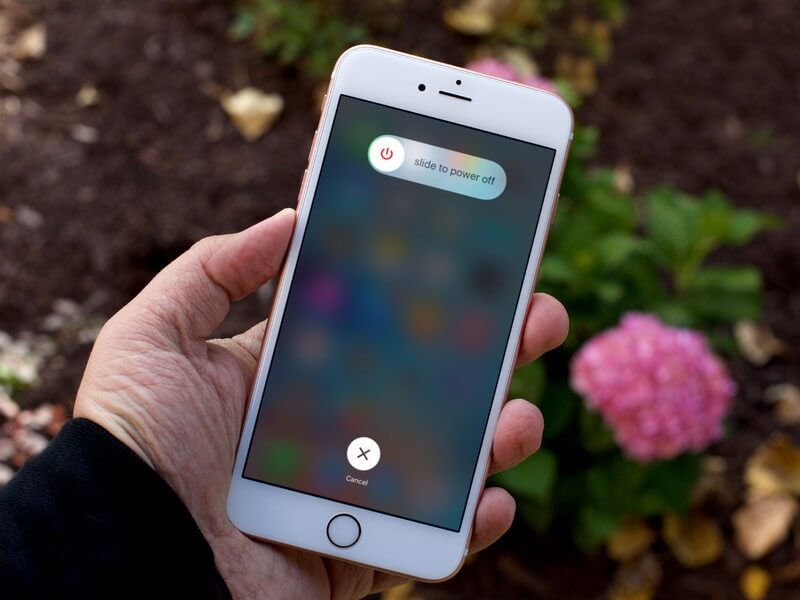Do you ever wonder – is reboot and restart the same?
How can we tell the difference between restarting your phone and rebooting it? It may seem like the same thing but there is quite a big difference between them. Still confused? Don’t worry, we’ve explained the meanings of each term, their differences and characteristic features below!
What does Reboot mean?
The word “Boot” implies that the hardware shifts from a non-functional state to an operational one — at least to the extent of being able to accept simple commands. Often “Boot” is used casually to mean “start a device”, though. This basically means to start up your device or just switch it on, or turn it on if you would like. It simple means to start the OS on your device, which will then in turn start up to be used by the user in any way that the person wants. “Boot” and “Reboot” mean almost the same thing.
Booting means turning on your phone and rebooting is nothing but restarting the smartphone. A phone could be rebooted for many reasons like if it hangs or if some apps are not responding.
How is Restart different from Reboot?
These two terms have almost the same meaning. Unlike the term “Reset” which would mean to change something, a “Restart” here, means to turn something on possibly without changing the settings. When you upgrade firmware or software on your smartphone, you are often asked to “Restart. As the name suggests , this means to shut down your device and restart it just like restarting a computer or laptop.

This would probably be used if there were a major change to functionality, while a “Reset” often just changes settings of existing functionality. Start up is used to describe something during a restart, for example a first screen that you see might be referred to as a Start up screen.
Now that you’ve understood the different meanings and their relative functions, let’s look at the key differences in more detail.
Difference 1: Different Speeds
Rebooting is much faster than turning your phone off and on again. The main reason is that it simply requires a longer amount of time to turn your phone off and restart it, whereas rebooting skips a lot of steps and it is obviously much faster due to this.
In fact, turning your phone on and off operates in the same way as a computer does, in that all hardware states are fully tested during the process of powering off/on. When restarting your phone both the system and hardware are turned off, and upon turning on, all the hardware are tested again, making the whole process relatively slow.
Since the reboot is the launch of your phone’s software and does not involve hardware, the system can automatically skip a whole lot of steps and directly enters the phone’s operating system (OS), meaning the whole process is much faster.
Difference 2: Different Power Consumption
When the phone shuts down, the system and hardware will all completely turn off as well. When the phone is turned on again, all the hardware on the phone will be tested again and the data has to be reloaded. Moreover, the CPU operates at full speed and power consumption is relatively larger.
A reboot is however, is only a restart at the phone’s software level. It will make the system automatically skip some steps and directly enter the operating system interface, therefore, relatively speaking, it is brilliant for power-saving!
Difference 3: Different Data Removal Processes
Restarting is a comprehensive test of the system and hardware, and it also involves removing some of the system’s junk data. Rebooting the phone, on the other hand, does not involve hardware, so some of the data in the system will not be cleared. Therefore the two have different removal processes.
Difference 4: Different Smoothness
Compared to rebooting, turning your phone on and off offers improved smoothness. The main reason for this is that the whole process of powering off and on the phone involves a comprehensive test of the phone, and at the same time, it will also clear the key programs and data at a deeper level of the system. In fact some junk data will also be removed at the same time. When you use the phone again, you can clearly feel that it is much faster than before, enhancing the quality of smoothness.
Everyday use of the phone results in a large number of “stubborn” apps. Resident memory slows down phone processes, causing the phone itself to become slow. So if you want to make your phone faster, in this case, it is a good idea to try restarting your phone off and on as it will clean up more thoroughly than simply rebooting.
As the reboot function does not involve the system level, the key programs and data deep within the system, especially the system junk, are still persistent and exist when the mobile phone is used continuously. As you can imagine, this will clearly affect the operating speed of the mobile phone to a certain extent.
Rebooting your phone consumes less power and is faster, while turning your phone off/on via restart will make your phone run much faster and fix a great deal of issues. But then again, most of the time, the results of the two options are almost the same. It is just that there are some differences in the processes between the two options. You can choose to reboot or restart according to your own needs and preferences.
We hope that out explanation of the differences between restarting your phone and rebooting your phone will be of help to you. Now you know what is the difference between reboot and restart on a phone.